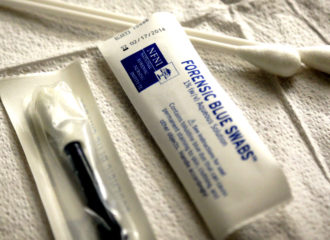This is an important time to investigate the relationship between medical professionals and sexual violence.
SHaME brought together researchers from different disciplines across the humanities and social sciences to explore the dialogues between medical professionals and people who have experienced sexual violence. We were an interdisciplinary research hub and each research project fed into collaborative debates around the role of police doctors/FMEs, medicine and law, psychiatry, and the aftermaths of sexual harms.

Research Projects
Research Themes

GPs, Police Surgeons, Forensic Medical Examiners
The ways medical professionals behave when faced with victims of sexual violence are important. Their responses vary dramatically over time as well as according to victim characteristic such as age, gender (including transgender), disability (e.g. Alzheimer sufferer) and minority status (e.g. African American, Latino, indigenous, refugee, sex worker), as well as the financial status of the medical service. Physicians’ behaviour, particularly scepticism about the veracity of the complaint, exerts a powerful pressure on levels of reportage.
If victims (or their caretakers) report the offence to the police, they are asked to consent to undergo a medical examination. Victims routinely claim that this is the most distressing part of reporting a sexual assault, yet medical evidence of assault and marks of violence are crucial for any successful prosecution. Physicians need to decide whether to prioritise medical assistance over the collection of evidence to present at court. Forensic sciences have dramatically altered practices and policies.
Physicians are also required to medically examine alleged perpetrators of sexual violence. How do police doctors reconcile the tension between health care and defence/prosecution requirements? In cases of alleged child sexual abuse within the home and ‘institutions of care’, how do medical practitioners evaluate ‘private’ needs (family, care-givers) versus ‘public’ justice (child protection)?

Medicine and Law
This Research Theme explores and explains shifts in the relationship between law, medicine, and sexual violence from the early 1800s, when medical jurisprudence became an elective course in medical schools, to the present. Medical jurisprudence texts claim to provide objective knowledge about science in relation to legal questions. They instruct medical students and practitioners on how to examine, assess, and adjudicate on complaints of sexual violence for use within legal settings. Key jurisprudence texts have been influential in formulating, propagating, and sometimes debunking many of the most prominent ‘rape myths’.
This theme is curious about changes in the legal education provided in medical schools about sexual violence, including the weighting given to such courses and their content. It analyses: the ways in which differences in legal structures affect the medical management of rape complainants; the impact of the increasingly adversarial relationship between physicians and jurists on rape trials; and the ‘construction of norms’ with regards to the bodies of both alleged victims and their assailants. Today, when only a tiny proportion of rapes reported to the police ever end in a conviction, an understanding of the history of medico-legal interactions is more urgent than ever.

From Psychopathia Sexualis to the DSM/ICD
Perpetrators of sexual violence have been understood through medical and psychiatric lenses, including those of moral insanity, degeneration, psychopathy, paedophilia, and sexual sadism. What do these different classification systems tell us about the meaning ascribed to sexual violence, including the ‘medicalisation of criminality’.
How has knowledge about the ‘nature’ or ‘identity’ of sex offenders changed over the past two centuries? We trace shifts from nineteenth-century notions of sexual danger to late-twentieth century evaluations of risk. Forensic psychiatry and medicine have attempted to make sense of sexually violent men and women through debates about degeneracy, psychosexual development, brain malformation, conditioning, hormonal balances, genetics, personality traits, and so on.
Psychiatrists and other mental health professionals have attempted to distinguish ‘ordinary sex offenders’ from ‘perverse’ or ‘sadistic’ ones. They have introduced techniques and technologies seeking to predict who is at risk of becoming a sex offender (e.g. phrenological and other physiological measurements, psychological and personality tests, penile plethysmograph). These have major implications for punishment and treatment regimes. Attention will be paid to the self-fashioning of offenders, who were not only subjects of psychiatry but also co-creators of scientific knowledge.

Psychiatric Aftermaths
We explore the aftermath of sexual violence for victims. How have victims of sexual harms dealt with its psychological aftermaths? Medical professionals have developed different ways of understanding the traumas of sexual violence, including rape trauma syndrome and PTSD. We are interested in geographic variations in the understanding of rape trauma, as well as the way such understandings have changed over time (such as the ‘humoral’ and ‘nerve’ models used in the nineteenth century and before).
The trauma of rape is often unevenly distributed by victim characteristics and offender profiling. What qualifies someone as an expert in diagnosing rape trauma (e.g. psychiatrist, social worker, member of rape crisis centre, police doctors) and how have ‘expert testimonies’ been received in court (viz. hearsay; issues of falsifiability and levels of reliability; their testimony rebounding negatively on victims)? The research will analyse the impact of feminist thought and medical activism on both scientific knowledge and therapeutic services.